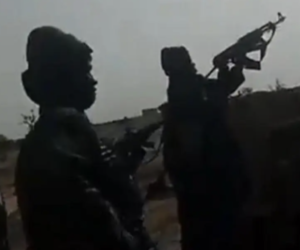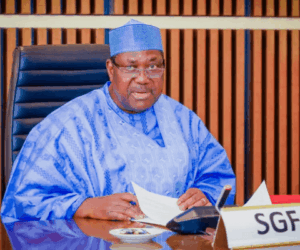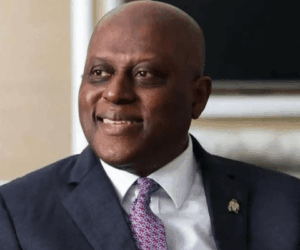The federal government, through the National Centre for the Control of Small Arms and Light Weapons (NCCSALW), Northeast Zonal Centre, has partnered with road transport workers and cattle breeders to curb the waybill and proliferation of illicit small arms and light weapons across the region.
The initiative, coordinated under the Office of the National Security Adviser (NSA) to President Bola Ahmed Tinubu, targets motor parks, cattle markets, and informal transport hubs identified as major channels used by traffickers to move concealed weapons into and within the Northeast.
Speaking during a stakeholder engagement with the National Union of Road Transport Workers (NURTW), National Association of Road Transport Owners (NARTO), and Borno Express in Maiduguri, the Northeast Zonal Director of NCCSALW, Major-General Abubakar Adamu (Rtd), reaffirmed the Centre’s commitment to halting illicit weapons flow.
He noted that traffickers often hide weapons in waybills, personal luggage, or commercial cargo moved through public transport services, making collaboration with motor park officials crucial in intercepting illegal shipments.
Adamu urged transport unions to take ownership of security within their communities by adopting community-based strategies, reporting suspicious movements, and intensifying public sensitisation on the dangers of arms proliferation.
“This engagement aligns with the broader objectives of NCCSALW and demonstrates our commitment to working with critical stakeholders to strengthen Borno State’s security posture,” he said.
Leaders of the transport unions, including NURTW chairman Abba Shuwa Baba, NARTO chairman Abba Jidda Bishara, and Borno Express manager Saminu Yakubu, pledged full cooperation. They highlighted previous interceptions of arms couriers at various motor parks but expressed deep concern over the lack of accountability in prosecuting suspects, many of whom they alleged are serving military or security personnel.
The stakeholders also lamented the absence of feedback on disciplinary actions taken against arrested suspects, a situation they fear discourages community-driven security efforts.
Another major security concern raised was the increasing number of illegal motor parks operating outside government-approved locations, which, they warned, provide cover for arms traffickers.
Participants reached a consensus on the need for the government to shut down such illegal parks, strengthen security presence in approved motor parks, and improve communication with stakeholders to encourage continued vigilance.
In continuation of its outreach, the NCCSALW Northeast Zonal Centre visited the International Cattle Market in Potiskum local government area, Yobe State, for another sensitisation meeting with the Amalgamated Cattle Breeders Association of Nigeria, and traditional leaders representing the Emir of Fika and the Mai Patiskum, and officials of Miyetti Allah.
The meeting focused on practical strategies for tackling arms trafficking through livestock trade routes and markets. Maj.-Gen. Adamu again urged market leaders and traditional authorities to take ownership of community-level safety structures and adopt a coordinated approach against arms proliferation.
In their remarks, Alhaji Hamza Nguru, state chairman of the Cattle Breeders Association, and Hon. Ado Gojun, executive chairman of Potiskum LGA, commended the centre for engaging grassroots actors and called for more frequent stakeholder meetings.
The centre also paid a working visit to Brig.-Gen. D. Abdussalam, Special Adviser on Security Matters to the Governor of Yobe State, as part of efforts to deepen state-level collaboration.








